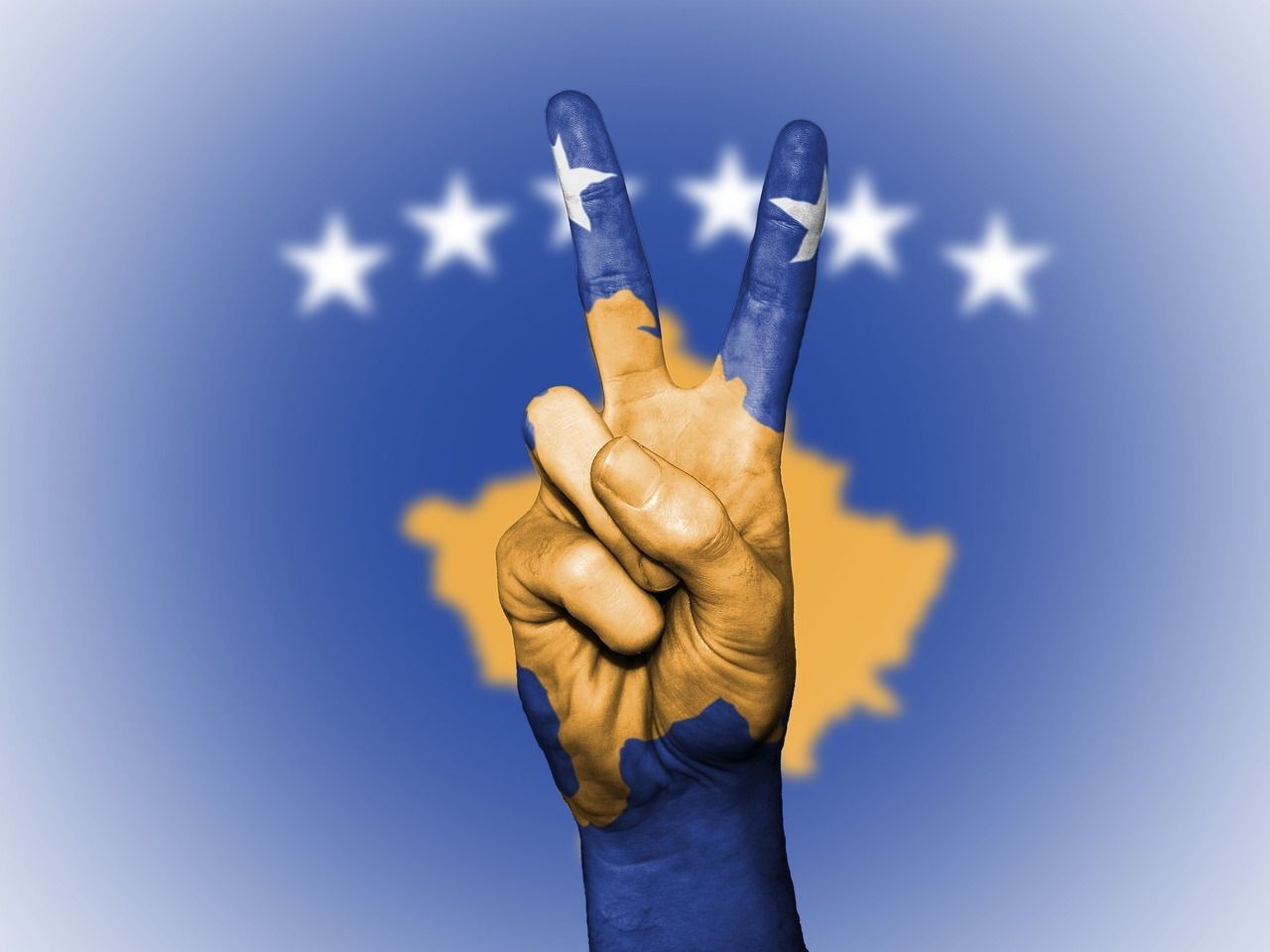
An intelligence service is the ideal vehicle for a conspiracy.
Intelligence Fun Fact:
Pentagon's HAYSTAC Program: AI-Powered Global Mobility Monitoring
The Pentagon's intelligence branch is set to revolutionize the way it tracks and analyzes the mass movement of people around the world. The project is called the Hidden Activity Signal and Trajectory Anomaly Characterization (HAYSTAC) program. The groundbreaking initiative, led by the Intelligence Advanced Research Projects Activity (IARPA), seeks to establish normal movement patterns across various times, locations, and populations and identify anomalies through the power of artificial intelligence (AI).
HAYSTAC's primary goal is to leverage the vast amount of geospatial data generated daily from internet-connected devices and smart city sensors. By harnessing machine learning and AI, it aims to gain unparalleled insight into human mobility patterns. Jack Cooper, HAYSTAC's program manager, emphasized the program's potential to identify abnormal movements and predict potential emergencies.
Pros of the HAYSTAC Program:
Enhanced Security: HAYSTAC has the potential to significantly enhance national security by monitoring and analyzing mass movements of people, allowing for early detection of security threats, including potential terrorist attacks.
Utilization of AI: The program leverages artificial intelligence and machine learning technologies to process and understand vast amounts of geospatial data, enabling more accurate anomaly detection and prediction.
Privacy Balancing Act: HAYSTAC acknowledges the importance of privacy in an era of pervasive sensors and aims to strike a balance between security and individual privacy.
Collaboration Opportunities: The program has generated interest from various companies, fostering collaboration and innovation in the field of intelligence and surveillance.
Potential for Health Monitoring: The application of AI in monitoring smartphone movements for health-related purposes, such as detecting traumatic brain injuries and predicting diseases, holds promise for improving public health and medical diagnoses.
Cons of the HAYSTAC Program:
Privacy Concerns: The program's data collection and monitoring capabilities raise significant privacy concerns, as it involves tracking and analyzing the movements of individuals, potentially infringing on personal freedoms.
Data Misuse: There is a risk that the collected data could be misused or abused for purposes beyond security, such as surveillance for political or personal gain.
False Positives: HAYSTAC's objective to identify anomalies may lead to a high rate of false positives, potentially resulting in unnecessary investigations and concerns for innocent individuals.
Ethical Implications: The use of AI and biometric data for surveillance purposes raises ethical questions regarding consent, autonomy, and the potential for discrimination based on behavioral patterns.
Technological Limitations: While AI and machine learning are powerful tools, they are not infallible. Technical limitations and errors in anomaly detection algorithms may result in missed threats or false alarms.
Resource Intensive: Implementing and maintaining a program like HAYSTAC requires significant resources, including financial investments, infrastructure, and expertise, which may divert resources from other critical priorities.
In summary, the HAYSTAC program has the potential to enhance security and early threat detection through advanced AI and data analysis. However, it also raises concerns related to privacy, ethical implications, and the risk of false positives. Balancing the benefits of enhanced security with the protection of individual rights and freedoms will be a critical challenge in the development and implementation of such technologies.
Stay safe out there!
Slovakia's Pro-Russia Political Shift

Slovakia, a nation of 5.5 million, is at the center of a developing geopolitical shift in Central Europe. Recent parliamentary elections have brought Robert Fico, a pro-Russian politician, back to the forefront of Slovak politics. Fico's return to the political stage raises concerns about Slovakia's foreign policy alignment, especially regarding Ukraine.
In the recent elections, Fico's SMER-SSD party secured nearly 23% of the vote, positioning him to lead coalition talks to form a new government. A key aspect of Fico's campaign was his stance on Ukraine. While he pledged humanitarian support and reconstruction aid for Ukraine, he vehemently opposes arming the country. This position aligns him closer with Hungary's Prime Minister Viktor Orban, than it does with most Western European nations.
Slovakia's NATO membership adds a layer of complexity to Fico's position. The alliance supports Ukraine in its conflict with Russia, making Slovakia's potential shift towards a more sympathetic stance with Russia a point of concern. Slovakia's population appears divided on the Ukraine issue, with a significant portion leaning toward Moscow's perspective. This division further complicates the country's foreign policy choices.
One crucial aspect of this political shift is the potential impact on EU policies, particularly concerning support for Ukraine. Slovakia's alignment with Hungary's Orban, indicates a challenge to the EU's consensus on Ukraine. As the EU seeks to maintain unity in opposing Russia's actions, Fico's government could pose a significant challenge from within.
Fico’s Rise
The rise of Fico and his SMER-SSD party also signifies a broader trend in Central Europe. Slovakia could follow Hungary's example in adopting a more nationalist and socially conservative agenda. Fico's party has criticized what it perceives as social liberalism imposed by Brussels, signaling a potential departure from EU norms on various social issues. This shift aligns with the overall trend of increasing Euroscepticism in parts of Europe.
Slovakia’s Changing Political Landscape
The political landscape in Slovakia is complex, with the Liberal Progressive Slovakia (PS) party coming in second place. PS is committed to maintaining Slovakia's strong support for Ukraine and pursuing a more liberal line within the EU. However, the moderate leftist HLAS (Voice) party, which came in third, could also play a crucial role in forming a coalition government.
Fico's history of pragmatism suggests that he may temper his rhetoric once in power, especially in a coalition government that includes more moderate parties. However, the direction of Slovakia's foreign policy and its impact on the region's stability remain subjects of concern.
One of the critical implications of this political shift is its potential impact on Ukraine. Fico's reluctance to provide military aid to Ukraine and his calls for peace talks could undermine Ukraine's ability to defend itself against Russian aggression. This shift may also embolden Russia and weaken the EU's collective stance on the Ukraine crisis.
Furthermore, Slovakia's political realignment towards a more conservative and nationalist agenda could have broader implications for the EU. The EU has been grappling with internal challenges to its unity, and Slovakia's move in this direction adds to these challenges. The EU may face growing resistance from member states on issues such as climate policies, human rights, and EU integration.
Escalating Tensions in Kosovo and the Broader Implications

In recent days, the tensions in Kosovo have once again come to the forefront of international attention. Recent violent incidents in the northern village of Banjska have raised concerns about regional stability. The situation in Kosovo, with its complex web of ethnic, historical, and political factors, is critical to understanding broader geopolitical dynamics in the Balkans and beyond.
The latest escalation of tensions in Kosovo occurred when approximately 30 heavily armed Serbs stormed the village of Banjska. The violent encounter resulted in the death of a Kosovo policeman and three of the attackers, underscoring the seriousness of the incident. The international community has been quick to respond, with NATO announcing an increase in its peacekeeping presence in northern Kosovo.
Kosovo, a landlocked territory in the Balkans, has been a hotspot for geopolitical rivalries and ethnic tensions since its declaration of independence from Serbia in 2008. Despite the international recognition of Kosovo's independence by a significant number of countries, including the United States, Serbia and Russia have steadfastly refused to acknowledge this sovereignty.
The recent events in Banjska serve as a reminder of the unresolved issues and fragile security situation that persists in Kosovo. Northern Kosovo, in particular, remains a flashpoint due to its Serbian-majority population and lingering ethnic divisions. The complexities of the situation stem from historical grievances, territorial disputes, and the overarching question of Kosovo's status, which continues to be a subject of contention.
Why is the situation in Kosovo important on a geopolitical scale?
Potential for Regional Instability: Kosovo's unresolved status and the ongoing tensions between ethnic Albanians and Serbs create potential for regional instability. Any flare-up of violence in the region could spill over into neighboring countries, thereby destabilizing the Western Balkans, an area still grappling with its own political and economic challenges.
NATO's Role: NATO's decision to increase its peacekeeping presence in Kosovo highlights the alliance's ongoing commitment to the region's stability. This move is significant not only for Kosovo but also for NATO's broader strategic interests in Eastern Europe. It reinforces the organization's role as a stabilizing force in the Balkans and sends a message of deterrence to potential aggressors.
EU's Diplomatic Efforts: The EU and the U.S. have been actively engaged in diplomatic efforts to broker a lasting peace between Kosovo and Serbia. The failure to reach a comprehensive agreement underscores the complexity of the situation and the enduring tensions. A peaceful resolution would have broader implications for the EU's ability to manage crises in its neighborhood and uphold the principles of territorial integrity and self-determination.
Russia's Influence: Russia's refusal to recognize Kosovo's independence and its close ties with Serbia present a geopolitical challenge. Moscow's support for Belgrade's position complicates efforts to resolve the Kosovo issue and highlights the broader contest for influence in the Western Balkans between Russia and Western powers.
Ethnic Divides: The ethnic divide in Kosovo is not limited to the territory itself but extends to neighboring countries with sizable Albanian and Serbian populations. Instability in Kosovo can have a ripple effect, impacting Kosovo Albanians and Serbs living in neighboring states, potentially exacerbating interethnic tensions.
The escalating tensions in Kosovo, exemplified by the recent violence in Banjska, serve as a reminder of the unresolved issues and fragility of the region's stability. The situation has significant implications not only for the Balkans but also for broader European security dynamics. It underscores the importance of continued diplomatic efforts to find a lasting resolution to the Kosovo question and highlights the challenges posed by competing geopolitical interests in the region.
Chinese Disinformation Efforts and U.S. Response

Recent developments between the United States and China have brought attention to the issue of disinformation and its potential impact on global politics and security. The U.S. State Department's accusations against China, claiming that Beijing is expanding its disinformation efforts, have escalated tensions between the two superpowers. In response, China has dismissed the U.S. report as disinformation itself, marking a concerning shift in the ongoing information warfare between the two nations.
The U.S. State Department's Accusations:
The U.S. State Department, through its Global Engagement Center, released a report accusing the Chinese government of significantly expanding its efforts to control information and disseminate propaganda and disinformation. The report alleges that China invests billions of dollars annually in foreign information manipulation. It highlights Chinese leader Xi Jinping's role in shaping the global information environment. Additionally, the report discusses U.S. concerns about China as a primary military competitor and a key rival in the battle over ideas and global disinformation.
China's Response:
In response to the U.S. accusations, China's Ministry of Foreign Affairs rejected the report, branding it as "disinformation" itself. The ministry criticized the U.S. State Department's Global Engagement Center, labeling it as a source of disinformation and the command center of "perception warfare." China's rebuke did not stop there; it also pointed to previous U.S. actions, such as the wars in Iraq and Syria and U.S. reports alleging human rights abuses in China's Xinjiang region, as examples of the United States' own disinformation campaigns. The ministry went on to accuse the U.S. of being an "empire of lies."
An Analysis:
The ongoing exchange between the United States and China regarding disinformation is important for several reasons:
Rising Tensions: The accusations and counter-accusations between the two superpowers have heightened tensions in an already strained relationship. As both countries vie for global influence, the use of disinformation as a weapon can exacerbate mistrust and create instability in international relations.
Global Implications: The U.S. report asserts that China's disinformation efforts extend beyond its borders and have global implications. If true, this indicates that China is actively attempting to shape international perceptions and narratives, potentially influencing public opinion and decision-making in other countries.
Information Warfare: The exchange highlights the evolving nature of international conflicts, where information warfare plays an increasingly significant role. Both the United States and China are leveraging information as a tool of statecraft, making it imperative for governments and institutions worldwide to develop strategies to combat disinformation and propaganda.
Credibility Challenges: The accusations of disinformation against each other raise concerns about the credibility of information disseminated by major global powers. In an era where trust in institutions and governments is already fragile, these allegations can further erode public confidence.
Escalation Potential: As both nations continue to accuse each other of disinformation campaigns, there is a risk of further escalation. This could lead to a deeper divide in international relations and potentially impact areas such as trade, diplomacy, and security cooperation.
The exchange of accusations between the United States and China regarding disinformation is a critical issue with global implications. It underscores the growing significance of information warfare in international politics and the challenges it poses to maintaining stable relations among major powers.
This Week Explained

Stay safe out there

